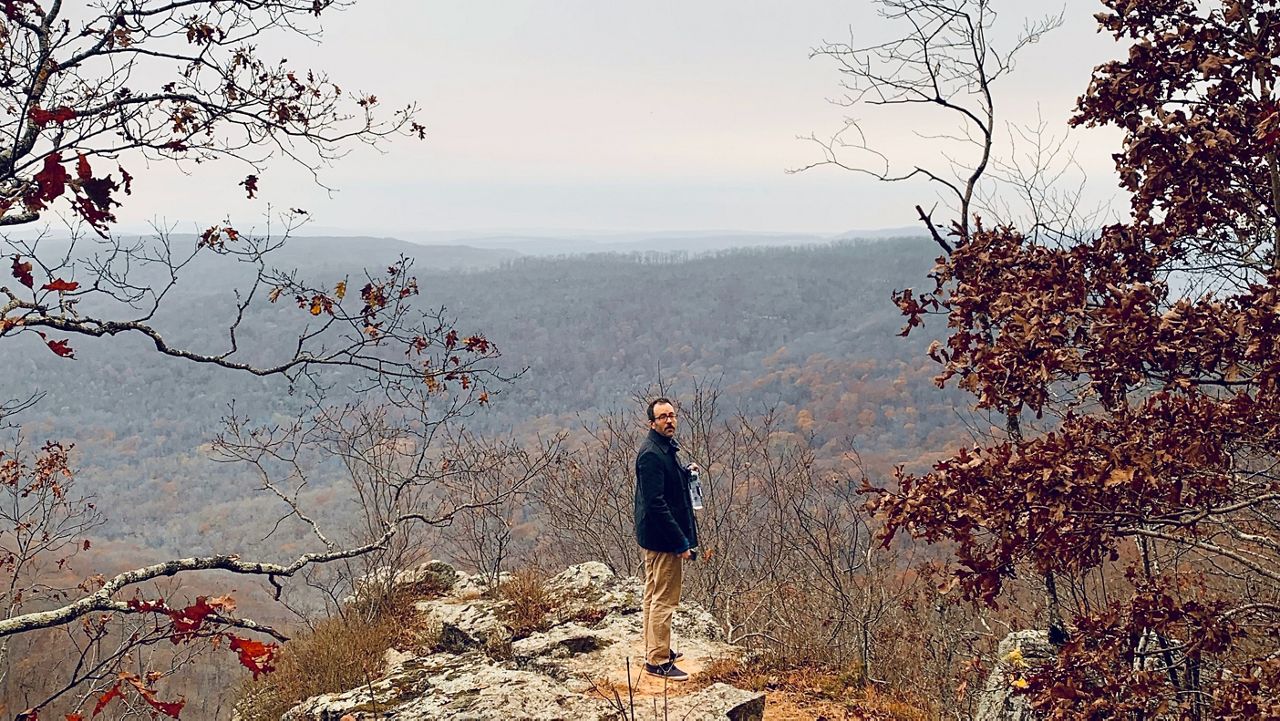LOS ANGELES — Jonathan Ade and his girlfriend, Tara, ultimately decided to drive from Los Angeles to his family’s home in northern Virginia, after months of tossing the idea around.
Like many Angelenos, they have been very risk-averse — no dining at restaurants, even outdoors; rare visits with friends, and even those were eight feet apart on porches.
The idea of being able to come home, after months of relative isolation where even the most semi-normal social situations felt like they’re wrapped in cellophane, was like a dream come true.
Ade and his girlfriend even put up with four COVID-19 tests, each, to make sure they were safe to be among his family.
As COVID cases began a winter surge, and state and national recommendations against travel began popping up, the stress ratcheted up for Ade. He and his girlfriend considered other options but quickly dismissed them. They’re prone to small infections, in air travel, even at the best of times.
So they pressed on and were among the first Californians to be part of what travel experts predict will be a much smaller travel surge than normally seen during the holiday season. Now, safely ensconced in Virginia until after Thanksgiving, Ade believes they won’t be making a similar trip away from L.A. at least until a vaccine is widely available.
“We anticipated it being a little stressful, but we wanted it to be 80% fun and 20% stressful. It ended up being 60/40, maybe 55/45, and meanwhile, cases have been rising all over the country,” Ade said. “We were doubting ourselves, asking if this is right thing to be doing right now.”
Many people in California and across the country seem to be asking themselves the same question.
The Centers for Disease Control and Prevention, the state of California, and Los Angeles County this week all issued advisories against Thanksgiving travel amid surging COVID cases. On Friday, L.A. County announced 4,272 new cases and 35 new deaths, as the daily averages climb.
“If we act now, we can prevent increasing rates of illness and death, stressing our health care system, and further stalling our recovery. If we agree that our collective priority is to reduce transmission of COVID-19 so we can move forward with recovery, then it is clear what needs to be done,” said Barbara Ferrer, L.A. County’s Director of Public Health. “We will need to modify holiday plans, change up our routines, and take care of each other.”
Jeffery Spring, a spokesperson for the Automobile Club of Southern California, agrees.
AAA expects that overall travel by Southern Californians will drop by 13% compared to 2019, for the largest year-over-year drop since the 2008 recession. That forecast expects car travel to not be quite as impacted as air travel, but related industries will still take a hit.
“Air and other forms of travel have dropped significantly, and that tempered the drop in car travel,” Spring said. “It’s still a decline, but based on the decline in other categories, if people are traveling, they’re feeling more comfortable doing it by car.”
Chip Rogers, president and CEO of the American Hotel and Lodging Association, found that 70% of Americans will not be hitting the road this year.
“Usually it’s the opposite. More than 70% do travel for the holidays," he said.
Heather Garcia’s family owns the shops at the small I-10 stop of Chiriaco Summit, where a small community has grown around a few businesses, including a gas station, a gift shop, and a cafe. It’s one of the only stops between Blythe and Coachella and a key stopping point for folks traveling between Southern California and the Southwest.
She’s seen quite a bit of travel over the last few months, more than just trucks and freight travel, but recreational travel to and from national parks and the Colorado River.
“Overall, we’ve been down [in 2020] – everything got really quiet in March and the beginning of April,” Garcia said.
The business stayed open, though, even with little foot traffic.
“Then it slowly started back, and now we’re seeing that we had a fairly busy September and October compared to 2019," she said.
It’s been so busy that she’s worried their supplier will be able to keep gas tanks filled during the week of Thanksgiving.
“They’re predicting a slower than normal travel week next week,” Garcia said. “I don’t know. We think it’s going to be at least as busy as last year," said Garcia.
Meanwhile, Ade is pleased to be among family — to have hugged his parents after about a year apart was an incredible relief, but the means of getting there were stressful. He and his girlfriend spent many evenings over their weeklong trip dodging people flouting mask requirements. Especially in the American South, mask-wearing seemed part of a culture of “politeness, but not respect.”
But, as someone who has been anxious about COVID this year, he’s still conflicted about his trip.
“There aren’t any good decisions. Every decision you make is going to be bad in some way, shape, or form. Whether it’s to stay home, to see people, to go outside, self-isolate, there’s no decisions that don’t have some feeling of bad to them in this process,” Ade said.
Digital Journalist Joseph Pimentel contributed to this report.



